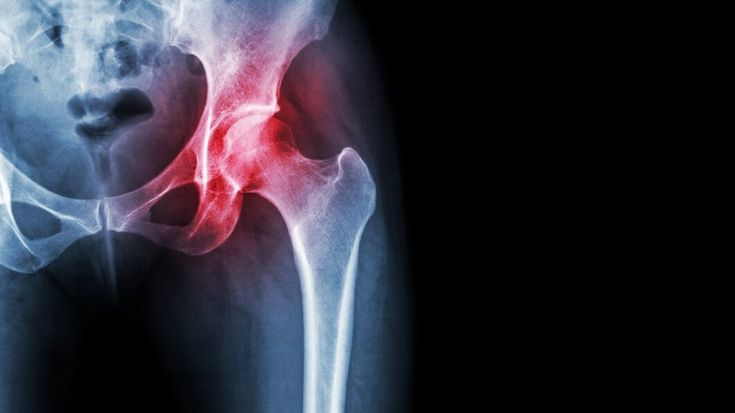Avascular necrosis refers to the destruction of bone tissue caused by a lack of blood flow. It is also known as osteonecrosis, and it can produce small cracks in the bone. Avascular necrosis causes the bone to collapse. The process normally takes months to years.

A shattered bone or dislocated joint might prevent blood flow to a portion of the bone. Avascular necrosis is also linked to long-term usage of high-dose steroids and excessive alcohol use. Anyone might be affected. However, the illness is most prevalent in adults between the ages of 30 and 50.
Any symptoms may not accompany the early stages of avascular necrosis. As the problem progresses, damaged joints may only pain when you put weight on them. Eventually, you may feel the agony even when you are lying down
Pain may be moderate or severe. It often develops gradually. Pain from hip avascular necrosis may be localized to the groin, thigh, or buttock. Aside from the hip, the shoulder, knee, hand, and foot may be affected.
Some persons get avascular necrosis on both sides, such as in the hips or knees.
Avascular necrosis Causes
Avascular necrosis develops when blood flow to a bone is disrupted or diminished. The following conditions may lead to reduced blood supply:
Joint or bone trauma: An injury, such as a dislocated joint, may cause damage to adjacent blood vessels. Radiation-based cancer therapies can potentially weaken bones and damage blood vessels.
Fat accumulation in blood vessels: Fat (lipids) can clog tiny blood arteries. This can limit blood supply to the bones.
Certain illnesses: Medical diseases such as sickle cell anemia and Gaucher’s disease can also reduce blood supply to the bones. The etiology of non-traumatic avascular necrosis is not always fully understood. Genetics, along with excessive alcohol consumption, certain drugs, and other disorders, are most likely to play a role.
Risk Factors
Risk factors for developing avascular necrosis include:
Trauma: Injuries, such as hip dislocation or fracture, can harm adjacent blood arteries and limit blood supply to bones.
Steroid usage: The use of high-dose corticosteroids like prednisone commonly causes avascular necrosis. The cause is uncertain; however, some scientists believe corticosteroids might raise fat levels in the blood, limiting blood flow.
Consuming too much booze: Drinking many alcoholic beverages every day for several years might also lead to the formation of fatty deposits in blood vessels. Bisphosphonate usage. Long-term usage of bone density-boosting medicines may raise the risk of developing jaw osteonecrosis. This uncommon effect has occurred in some patients receiving large dosages of these drugs for tumors such as multiple myeloma and metastatic breast cancer.
Several medicinal therapies: Radiation treatment for cancer can damage bones. Avascular necrosis has also been linked to organ transplantation, particularly kidney transplants.
Medical problems related to avascular necrosis include:
Pancreatitis is often known as Gaucher’s disease.
HIV/AIDS
Systemic lupus
Sickle cell anemia.
Decompression sickness is often known as divers’ illness or the bends.
Certain cancers, such as leukemia
Complications
Untreated, avascular necrosis progresses. Eventually, the bone may collapse. Avascular necrosis causes the bone to lose its smooth structure, leading to severe arthritis.
Prevention
To lower the risk of avascular necrosis and enhance overall health:
Limit your alcohol intake. Heavy drinking is a major risk factor for getting avascular necrosis.
Keep your cholesterol levels low. Tiny particles of fat are the most prevalent material that prevents blood circulation to bones.
Keep track of steroid usage. Make sure your healthcare practitioner is aware of your previous or current usage of high-dose steroids. Steroid-induced bone degeneration tends to increase with subsequent rounds of high-dose steroids.
Do not smoke. Smoking constricts blood arteries, reducing blood flow.
When to visit a doctor?
If you are experiencing continuous discomfort in any joint, consult your doctor. If you suspect you have a fractured bone or a dislocated joint, get medical assistance immediately.

